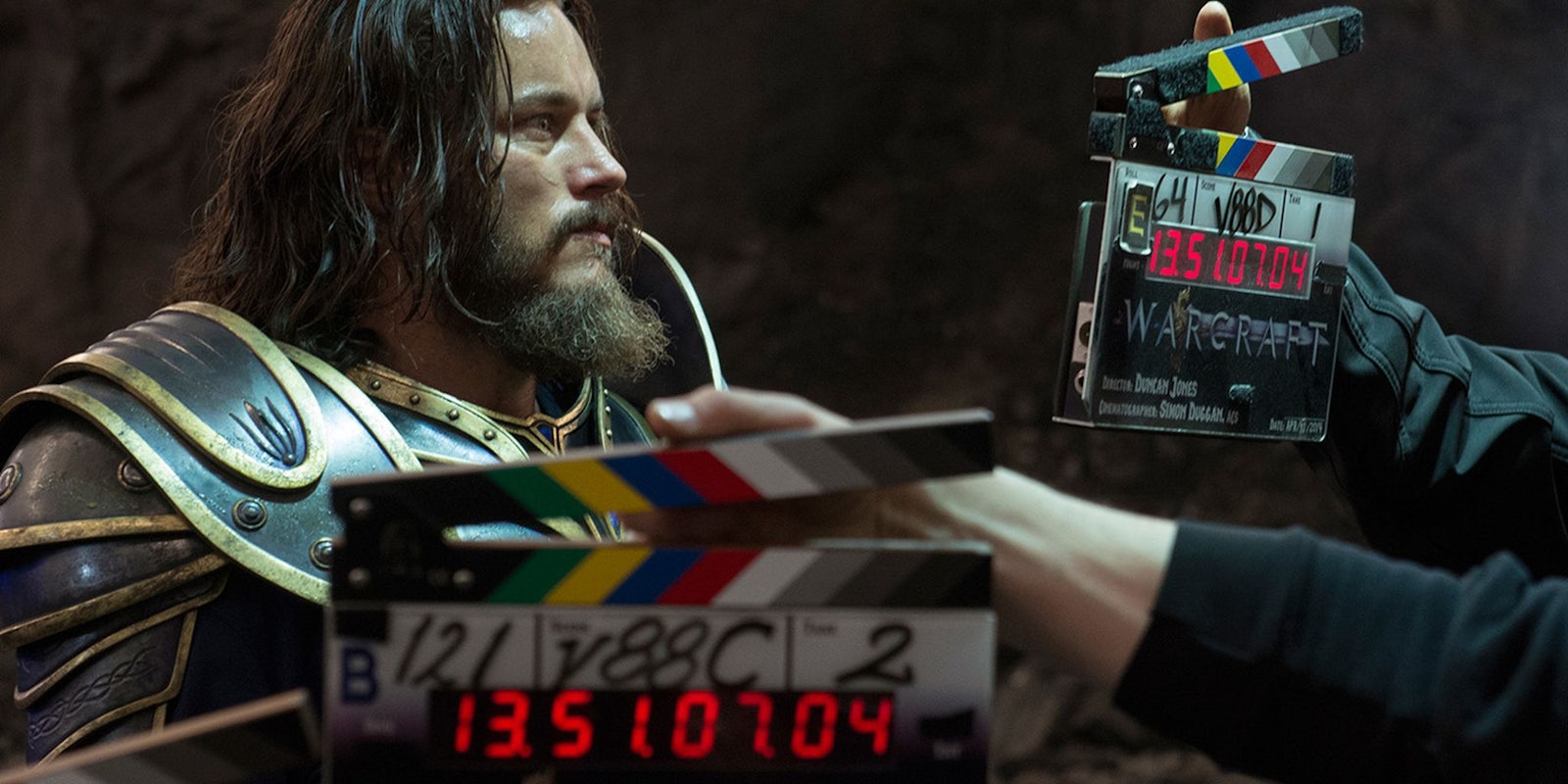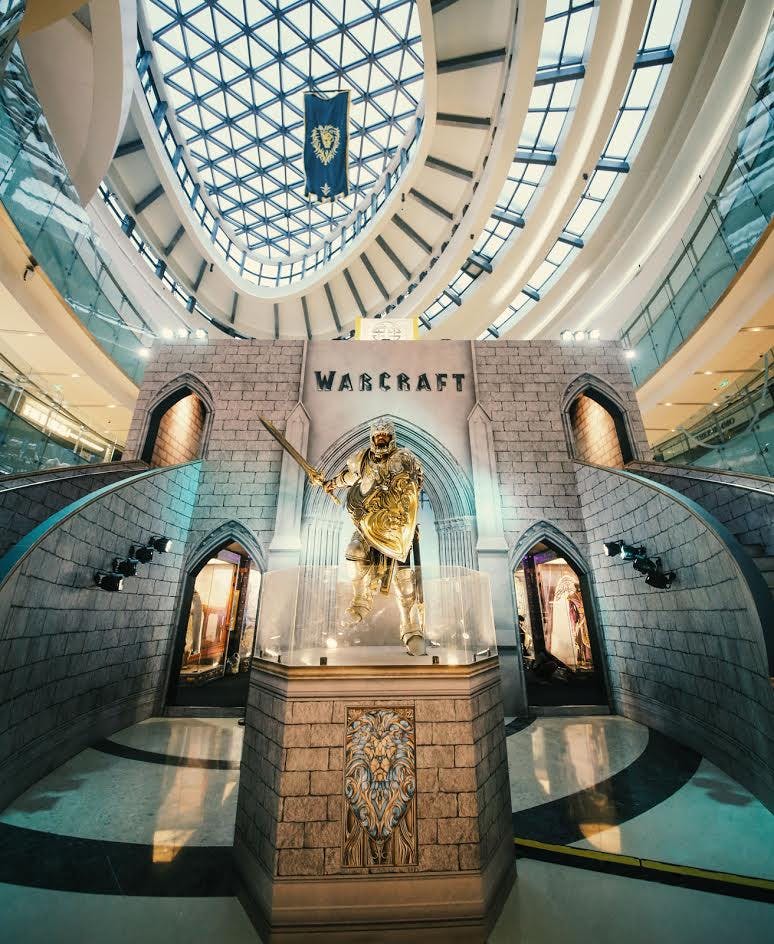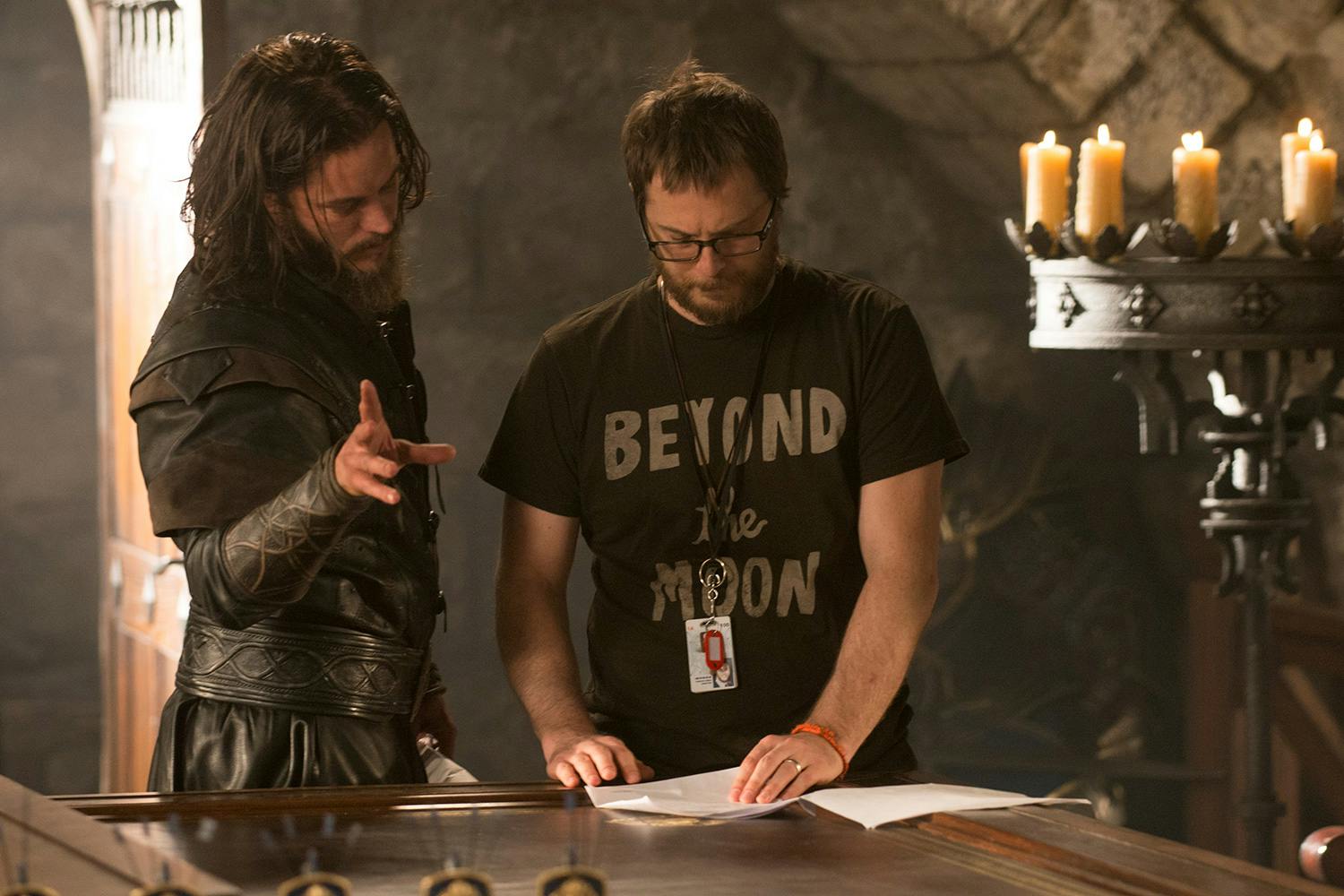Warcraft the movie is not a good film. In fact, it’s terrible. Most reviewers who’ve seen it, both veteran gamers and novices alike, didn’t care for it. It’s two hours of lackluster acting, cliched plot lines, and CG motion capture that will look about as convincing in 10 years as the Beowulf film does now.
The domestic weekend box numbers weren’t great, as the 26-percent-on-Rotten-Tomatoes clunker only raked in $24.4 million domestically. Considering the fact that the movie cost $160 million to make, Warcraft won’t be looked at as a success in the United States.
However, Warcraft will absolutely get a sequel.
Even if the film isn’t a hit here in the states, it is a blockbuster in China. It raked in about $45 million on opening day, breaking release day records, and is expected to generate about $300 million in the country. That would make it the second-highest grossing film of all time in China, as well as the biggest foreign film, outselling U.S. blockbusters like Star Wars: The Force Awakens.
The overseas hit represents an ongoing, subtle shift in Hollywood. The Warcraft movie was designed to sell in China. In fact, the film was actually made more for China than it was for the United States.
Legendary Pictures has been working on the Warcraft movie for years, buying the rights for the film about a decade ago. At the time, World of Warcraft was one of the fastest growing games in the world. Between 2005 and 2006, the game grew from 1.5 million subscribers to more than 7 million, peaking at about 12 million in 2010.
China is courting Hollywood for more films, as well as influence.
However, the game is not the behemoth it used to be. As of last November, World of Warcraft had about 5.5 million subscribers, with California-based game developer Blizzard Entertainment announcing it would no longer be releasing numbers on how many players it has left. Blizzard has since released the freemium collectible-card mobile game Hearthstone: Heroes of Warcraft, which looks to be doing well, and its competitive multiplayer online battle arena game Heroes of the Storm, which is starting to show its wear and tear. Heroes competitive team Cloud9 recently announced that it’s quitting the game, and there are rumors that MVP Black may leave by the end of the year.
Without a doubt, China is World of Warcraft’s biggest audience, with at least one-third to half of current players believed to be Chinese. It’s a cultural icon in the country, with a legacy spanning a generation of players. China’s love of the Warcraft universe is one of the main reasons why Blizzard made the Mists of Pandaria expansion in 2012.
Legendary has taken great strides to appeal to Chinese moviegoers for the Warcraft film. In 2014, Asian-American actor Daniel Wu was cast to play Gul’Dan, one of the Orcs from the film. He’s a talented actor and fit the role well, but sources also cited his popularity among Asian audiences as motivation for his casting.
Last December, Blizzard held a massive mall tour across the country, featuring dozens of props, set replicas, costumes, a giant Warhammer display, and a virtual reality ride on the Gryphon from the film. There was no such mall display in the United States.
The film’s release date was also strategically designed for China’s audience. It was originally set to come out in December, but was delayed because of Star Wars: The Force Awakens. Then it was perfectly placed so that Warcraft came out right after students finished their exams.
China is making Hollywood a lot of money. It’s on track to become the biggest movie market in the world.
China’s movie industry is booming, and it’s making hits out of films that would’ve otherwise performed OK stateside: Pacific Rim, Transformers: Age of Extinction, and The Terminator: Genisys become international sensations largely thanks to Chinese ticket sales. China accounted for 25 percent of Pacific Rim’s sales when it first came out.
According to the Hollywood Reporter, China’s movie market grew almost 50 percent in 2015. Mike Ellis, who heads the Asia Pacific operations of the Motion Picture Association of America, said ticket sales are set to reach $6.5 billion this year. If the industry continues its uphill climb, Ellis predicted China would soon surpass the U.S., becoming the world’s biggest movie market by 2017.
As a result, China is courting Hollywood for more films, as well as influence. Chinese movie studio Bona Film Group invested millions into a finance company behind major studios like 20th Century Fox. Chinese media mogul Bruno Wu partnered with a Beijing financial service company to create a billion dollar investment fund, which is devoted to funding movies and TV shows for an international audience.
We’re also seeing Hollywood directly take up shop in China. The Russo brothers, who directed Captain America: Winter Soldier, opened a startup studio in China called Anthem Pictures to produce Chinese-language films for local audiences. Other studios are collaborating directly with Chinese studios to make movies both in China and America.
Legendary Pictures is undoubtedly one of the biggest recent Chinese acquisitions. In January, Legendary Pictures was purchased by Wanda Group, a Chinese theater chain conglomerate that owns AMC Entertainment. Legendary Pictures founder and CEO Thomas Tull said in a statement that he was excited to “create a completely new international entertainment company.”
Warcraft was technically made before the buyout, but Legendary Pictures has been involved in the Chinese movie market since 2011—back when it was first trying to form its Chinese joint venture Legendary East. The Asian subsidiary has been heavily involved in the financing and distribution of Warcraft, securing a $10 million Chinese investment for the film all the way back in 2014. Legendary East also helped market Pacific Rim in China, where it made about $100 million more than it did here in the U.S.
No surprise, the sequel is now being cast.
It’s an interesting shift in power. Crouching Tiger, Hidden Dragon made millions more in the United States than it did internationally, and plenty of changes were made to make it more suitable for a western audience, like increasing female representation.
However, there is one major problem: censorship. As the Chinese movie market has become bigger, so have the demands to make films for the Chinese audience. And by audience, oftentimes that means the country’s communist government. Given how China only allows 34 foreign films into the country every year, American films that aren’t co-produced in China have struggled to meet the expectations of its government.
This has included changing the villains in the Red Dawn remake from Chinese to North Korean, and removing scenes depicting Chinese bad guys in Men in Black 3 before it was released in China. Screenwriter C. Robert Cargill partially blamed China for Tilda Swinton’s casting as the Ancient One in Doctor Strange, because Chinese audiences, and the government, would reject a Tibetan actor in the role. American film director Dede Nickerson, who has spent decades working on films in China, said Hollywood’s even starting to predict China’s objections and self-censoring to avoid problems.
“China is so important to Hollywood, that I would say that those decisions are going to get made when a film is being green lit to be careful about what may be offensive to Chinese people or to the Chinese authorities,” Dede Nickerson told 60 Minutes reporter Holly Williams. “They won’t need to cut because… they won’t make them in the first place.”
Even the game has experienced government censorship. World of Warcraft has had to make numerous adjustments to fit censorship laws against supernatural elements and extreme violence, including changing the color of blood, replacing corpses with tombstones and adding skin onto skeletons. It’s also the reason why China’s subscription model is by-the-minute instead of monthly, because the government limits how long players can play due to fears of addiction. (Given that a Chinese player died last year after playing WoW for 19 hours straight, and there are thousands of WoW addiction centers nationwide, it’s not a fear that’s entirely unwarranted.)
Legendary now sets its sights on collaboration. It’s working on its first major U.S.-China co-production with The Great Wall, a $135 million international blockbuster starring Matt Damon, Chinese actor Andy Lau, and Willem Dafoe. The studio is also gearing up for a multi-year monster movie series starring King Kong and Godzilla, with Kong: Skull Island coming out in 2018. This is largely thanks to how well Godzilla 2014 performed in China, where it brought in more money than in the U.S.
Legendary is clearly planning for the long haul with China, and based on how well Warcraft is doing, it will probably work. Let’s just hope the next films are a little bit better, and a lot less censored.




